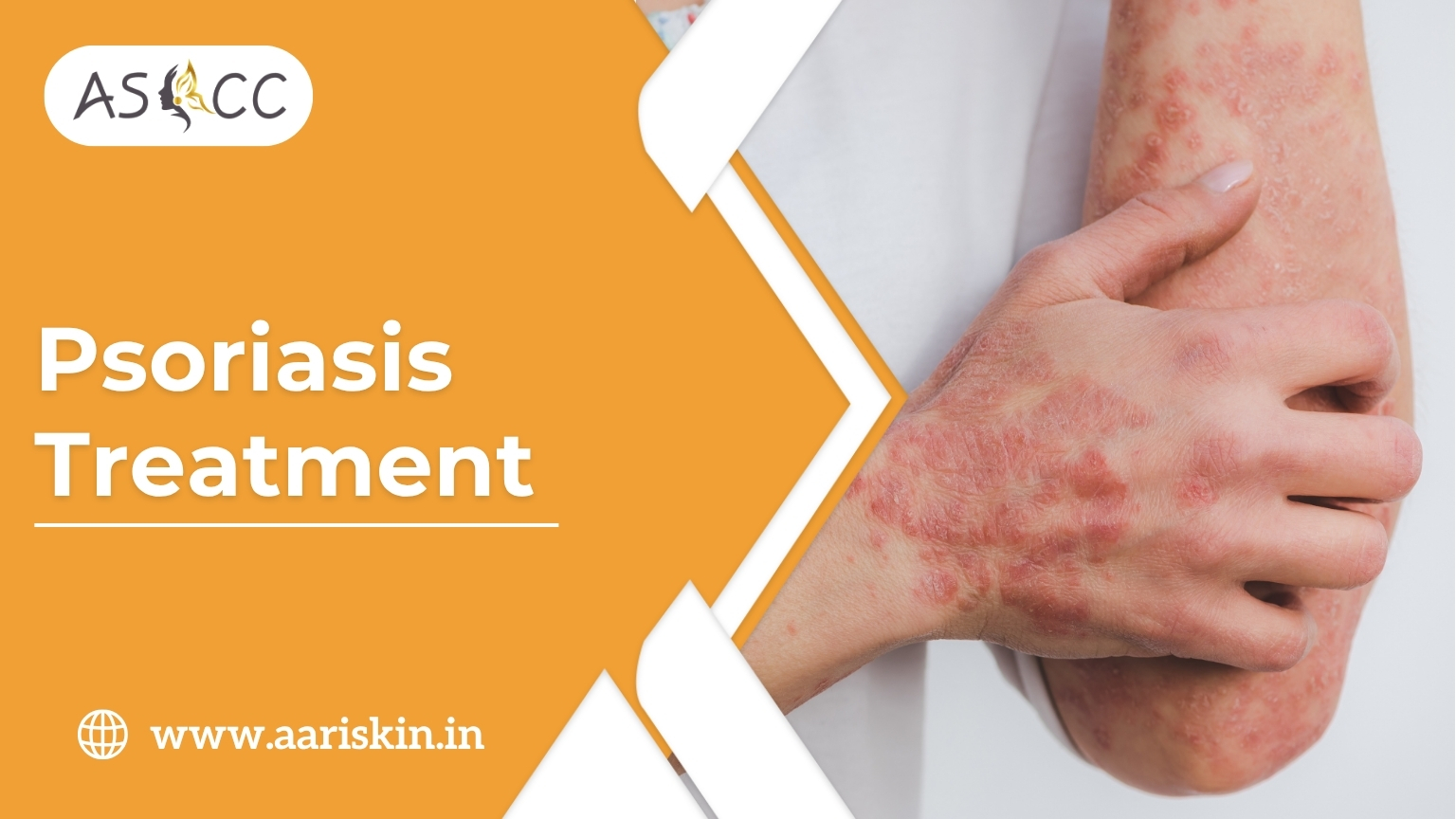What is Psoriasis?
Psoriasis is a chronic autoimmune skin condition where skin cells multiply too quickly, leading to thick, red, scaly patches on the skin. It can appear on the scalp, elbows, knees, back, and even nails or joints (in psoriatic arthritis).
It is not contagious, but can be genetic or triggered by stress, infections, or medications.
Common Types of Psoriasis:
| Type | Description |
|---|---|
| Plaque Psoriasis | Most common; thick, scaly red patches |
| Scalp Psoriasis | Flaky, dandruff-like scales on the scalp |
| Guttate Psoriasis | Small red spots, often after throat infections |
| Inverse Psoriasis | Smooth red patches in folds (groin, armpits) |
| Pustular Psoriasis | White pustules with redness, usually on hands/feet |
| Nail Psoriasis | Pitting, discoloration, nail separation |
Psoriasis Treatment Options:
Topical Treatments (For Mild Cases):
- Steroid creams – reduce redness and inflammation
- Vitamin D analogues (e.g. Calcipotriol) – slow cell growth
- Coal tar / Salicylic acid – reduce scaling and thickness
- Moisturizers / Emollients – to prevent dryness and flare-ups
Phototherapy (UVB Light Therapy):
- Uses narrowband UVB light to slow skin cell turnover
- Done 2–3 times a week under medical supervision
- Effective for moderate psoriasis or widespread plaques
Systemic Medications (For Moderate to Severe Cases):
- Oral medicines: Methotrexate, Cyclosporine, Acitretin
- Biologics: Target immune system (injections like Secukinumab, Adalimumab)
- Prescribed after thorough evaluation and blood tests
- Regular monitoring is essential
Scalp Treatments:
- Medicated shampoos (Ketoconazole, tar-based, Clobetasol)
- Scalp lotions or foams for easier application
Lifestyle & Dietary Support:
- Stress management (yoga, sleep hygiene)
- Anti-inflammatory diet (rich in omega-3, antioxidants)
- Weight control if obesity is a trigger
When to See a Dermatologist:
- Skin patches are persistent or spreading
- Itching, burning, or cracking skin
- Nail changes or joint pain
- Over-the-counter products don’t help






